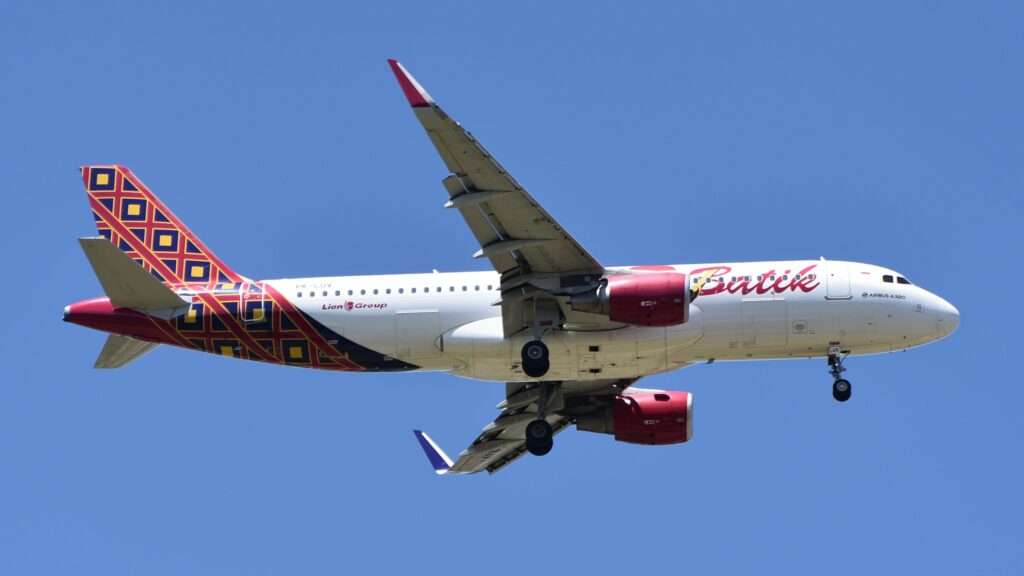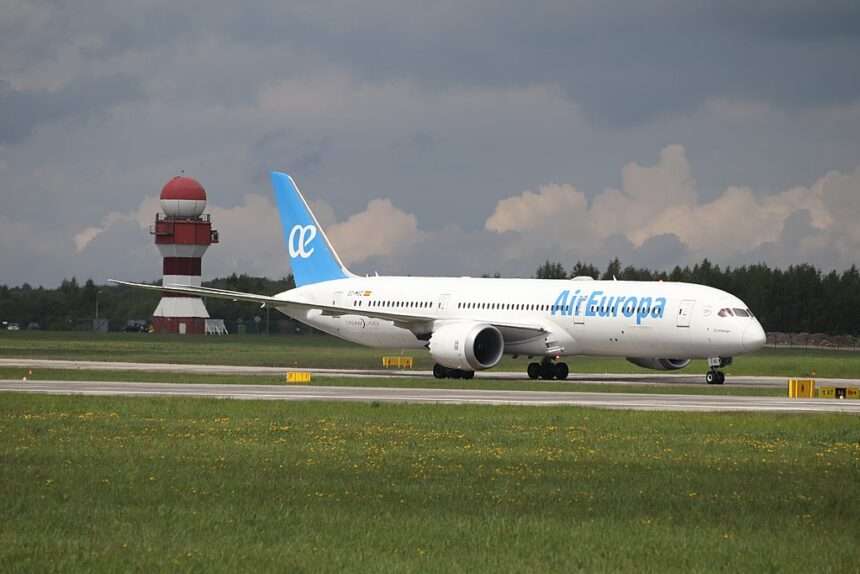Indonesian authorities will open an investigation following the revelation that both pilots on a batik air scheduled service had both fallen asleep during the flight. The in-flight incident occurred on January 25 this year and involved an Airbus A320 operating from Southeast Sulawesi to Jakarta.
Indonesia’s transport ministry, the National Transportation Safety Committee (KNKT) has now advised that it will be opening an investigation.
Batik Air January Flight
In the January incident, both pilots on a Batik Air flight from Kendari to Jakarta, Indonesia, reportedly fell asleep simultaneously in the cockpit earlier this year. The regional flight was carrying 153 passengers at the time.
A report posted by the KNKT stated that approximately 30 minutes after departure the Captain advised the First Officer that he would rest for a while. This was acknowledged, and the First Officer then assumed the Pilot Flying role.
However, some time thereafter, the First Officer inadvertently fell asleep. As a result, both flight crew members were asleep simultaneously for approximately 28 minutes.
This lapse in pilot vigilance, resulted in the aircraft deviating from its designated course and missing air traffic control (ATC) communications.
Fortunately, the situation did not escalate further. The Captain subsequently woke up and was able to re-establish course. The aircraft subsequently landed without further incident.
However, this event has understandably sparked safety concerns and prompted an investigation by Indonesian aviation authorities.
Investigation and Repercussions
The Indonesian Transportation Safety Committee (KNKT) is currently investigating the factors that led to this incident. Pilot fatigue is a prime area of focus, with authorities scrutinizing Batik Air’s crew scheduling practices and rest time regulations.
The preliminary report indicated that “the second-in-command had one-month twin babies. His wife took care of the babies and he assisted while at home.”
Following the incident, KNKT issued a reprimand to Batik Air, highlighting the paramount importance of adhering to mandated crew rest times.
Ensuring adequate pilot rest is crucial for maintaining focus and alertness during flights, thereby minimizing the risk of human error.

Pilot Fatigue: A Persistent Threat
Pilot fatigue is a longstanding challenge in the aviation industry. Long working hours, demanding schedules, and the pressure to maintain tight flight turnaround times can all contribute to pilot fatigue.
In severe cases, sleep deprivation can impair judgment, reaction time, and overall cognitive function, potentially jeopardizing flight safety.
This incident serves as a stark reminder of the consequences of pilot fatigue.
Moving Forward: Prioritizing Safety
The Batik Air incident highlights the need for robust regulations and rigorous enforcement regarding crew rest times.
Airlines typically prioritize pilot well-being by ensuring adherence to established rest protocols. Additionally, fostering a culture of open communication within the industry can empower pilots to speak up when they feel fatigued or overwhelmed.
Furthermore, advancements in technology, such as cockpit monitoring systems, can offer additional safeguards by detecting pilot drowsiness and initiating corrective measures.
This incident serves as a wake-up call, urging airlines and aviation authorities to place crew rest at the forefront of ensuring continued safety in the skies.
Batik Air Confirms Adequate Policy
Batik Air, established in 2013 as the full-service arm of Lion Air Group, is well established in the Indonesian aviation market.
The airline boasts a modern fleet and a focus on comfortable in-flight experiences. This incident poses a potential challenge to Batik Air’s image as a reliable and safety-conscious carrier.
Actions to restore trust could involve collaborating with pilot unions to develop improved rest schedules.
Fostering a work environment where crew members feel comfortable reporting fatigue concerns without fear of reprisal may be in order.
According to a statement issued over the weekend by Batik Air carrier confirmed that it operates with adequate rest policy.
The airline said that it was “committed to implement all safety recommendations” made by the KNKT.

Click the banner to subscribe to our weekly Emergencies and Incidents newsletter.

Click the photo to join our WhatsApp channel so then you can stay up to date with everything going on in the aviation industry!









